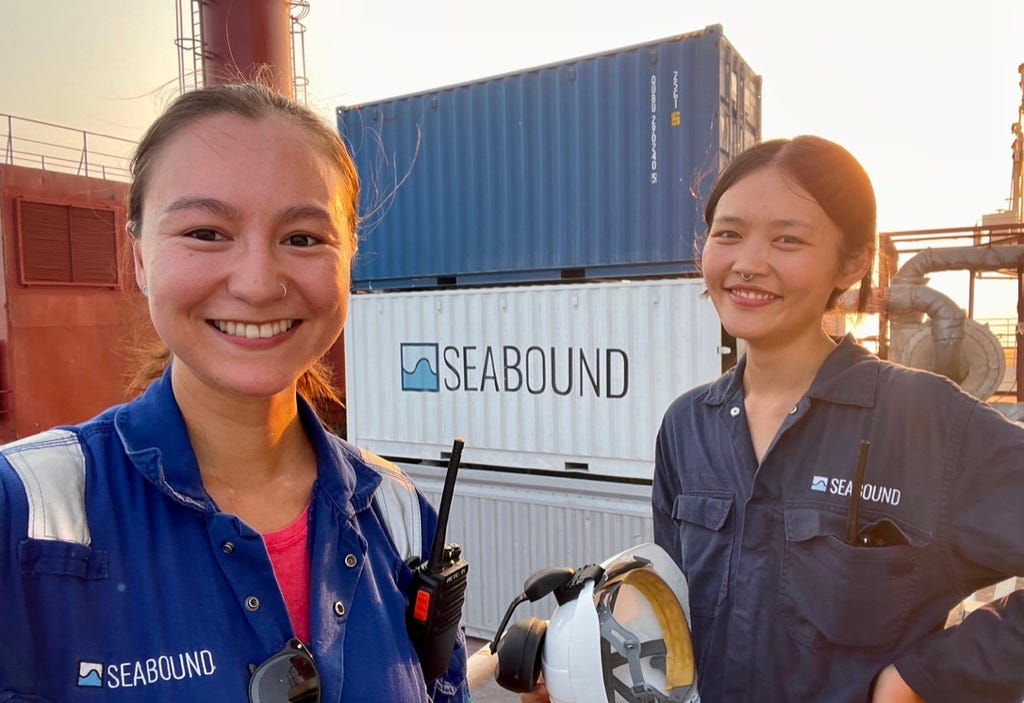The plan to scrub CO2 from ships’ fumes
Can Seabound guarantee a net reduction in emissions?
At shipyards around the world today, there are ships under construction that – unless they are later modified – will run on fossil fuels well past the year 2050. That’s roughly when the shipping industry aims to reach net zero.
“These assets live for 25-30 years,” says Alisha Fredriksson, co-founder and chief executive of Seabound, a carbon capture and storage (CCS) firm in the shipping industry. “Carbon capture is really the only thing that we can do.”
More than 500 merchant vessels were ordered in the first half of 2025, according to industry estimates, but fewer than 30% of them will use so-called alternative fuels – such as methanol, ammonia or hydrogen.
Fredriksson’s company aims to fit carbon capture systems to commercial ships and soak up some of the greenhouse gases produced by those vessels. But CCS technology is divisive. Some fear that companies will use CCS to carry on business as usual, prolonging use of fossil fuels and holding back net zero, rather than accelerating it.




